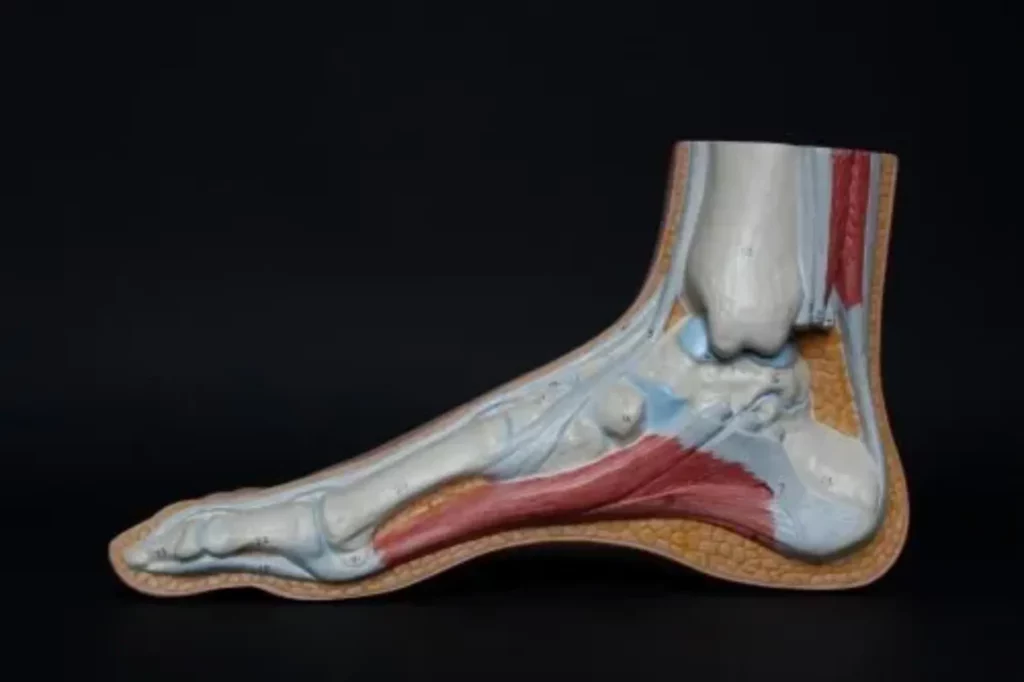The Achilles tendon plays a huge role in the welfare of the lower leg, foot, and ankle. Any injury to this tendon can cause swelling, tenderness, severe pain, stiffness, and inflammation. Any damage which isn’t looked at can lead to long-term problems, so they must be examined by a professional podiatrist. Let us help you!
What is Achilles Tendonitis?
One of the most common conditions to affect athletes and runners is Achilles Tendonitis, also known as Achilles Tendinopathy. These conditions generally occur due to general overuse or repetitive trauma to the tendon. If left untreated, over time, this can lead to loss of movement in the tendon and severe pain.
The Achilles tendon (or calcaneal tendon) is vital to the body. It is a large band that connects the heel to the calf muscles, which has a direct effect on your mobility. It also aids the movement of the heel. The main cause of pain here is overuse; this can cause pain and inflammation in the lower leg, general heel pain and pain across the entirety of the foot.
The tendons’ main component is collagen, a tough and dense tissue. It is divided into lines and all bundled together. When one part of a tendon becomes sensitive, this can lead to reactive tendinopathy. One characteristic of the condition is an abnormal amount of water and swelling around the bundles of tendons. This alters the structure of the tendon and can cause the tissue to soften and weaken.
How can I help Achilles Tendinopathy?
Achilles tendonitis will generally self-heal over time. However, you can help with this process and speed it up with some easy solutions. On consultation, it may be suggested that you take a rest from activity, some physical therapy and anti-inflammatories. Probably the biggest help would be to take time off from the activities which exacerbate the issue (i.e. running, cycling). If you are suffering from Achilles pain, please, give us a call to book an appointment or use our easy online booking system. We can help!
For most people, resting an Achilles tendon is not an easy task. It means taking time out of activities that patients generally enjoy or missing out on everyday life. It is necessary to rest if you wish for the injury to heal properly.
There are some types of exercise which will help to rest the tendon whilst also enabling the sufferer to exercise. For example, swimming and cycling are both great cardiovascular activities, but neither is weight-bearing on the foot, thus allowing it to heal still.
A podiatrist can also give you some stretches to do to help speed up the healing process. It is essential to speak to a professional before starting a new exercise routine to ensure it is helping the healing process and not creating more injury or exacerbating the current one.
One of the most common exercises is isometrics. They are a great way to build muscles without causing further injury and protect yourself from future injury.
One of the most common causes of tendinitis is inflammation. By taking an anti-inflammatory, it can help reduce swelling and pain. The theory behind it is that treatment prevents specific proteins from building up in the tendon.
When you have an injury, you must get to the root of the problem so that it can be treated effectively. A podiatrist will perform a physical examination and try to determine when the injury
occurred. A simple adjustment of your shoes, or an insole/orthotic device, could really help the issue. A podiatrist may also study perform a full gait analysis to see if how you run or walk exacerbates the problem.
If you have experienced Achilles pain, please do get in contact with us here at Quest Podiatry Foot Clinic, and we can help you!






